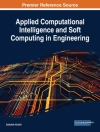Distributed Coordination of Multi-agent Networks introduces problems, models, and issues such as collective periodic motion coordination, collective tracking with a dynamic leader, and containment control with multiple leaders, and explores ideas for their solution. Solving these problems extends the existing application domains of multi-agent networks; for example, collective periodic motion coordination is appropriate for applications involving repetitive movements, collective tracking guarantees tracking of a dynamic leader by multiple followers in the presence of reduced interaction and partial measurements, and containment control enables maneuvering of multiple followers by multiple leaders.
Cuprins
Part I: Preliminaries and Literature Review.- Preliminaries.- Overview of Recent Research in Distributed Multi-agent Coordination.- Part II: Emergent Problems in Distributed Multi-agent Coordination.- Collective Periodic Motion Coordination.- Collective Tracking with a Dynamic Leader.- Containment Control with Multiple Leaders.- Part III: Emergent Models in Distributed Multi-agent Coordination.- Networked Lagrangian Systems.- Networked Fractional-order Systems.- Part IV Emergent Issues in Distributed Multi-agent Coordination.- Sampled-data Setting.- Optimality Aspect.- Time Delay.
Despre autor
Wei Ren received the B.S. degree in electrical engineering from Hohai University, China, in 1997, the M.S. degree in mechatronics from Tongji University, China, in 2000, and the Ph.D. degree in electrical engineering from Brigham Young University, Provo, UT, in 2004. From October 2004 to July 2005, he was a Postdoctoral Research Associate with the Department of Aerospace Engineering, University of Maryland, College Park. Since August 2005, he has been with the Department of Electrical and Computer Engineering, Utah State University, Logan, where he is currently an Associate Professor. He is an author of the book Distributed Consensus in Multi-Vehicle Cooperative Control (Springer-Verlag, 2008). His research focuses on distributed control of multi-agent systems, networked cyber-physical systems, and autonomous control of unmanned vehicles. Dr. Ren was a recipient of the National Science Foundation CAREER Award in 2008. He is currently an Associate Editor for Systems and Control Letters and an Associate Editor on the IEEE Control Systems Society Conference Editorial Board.Yongcan Cao received the B.S. degree from Nanjing University of Aeronautics and Astronautics, Nanjing, China, in 2003 and the M.S. degree from Shanghai Jiao Tong University, Shanghai, China, in 2006, and the Ph.D. degree from Utah State University, Logan, in 2010, all in electrical engineering. His research interest focuses on cooperative control and information consensus of multi-agent systems.












